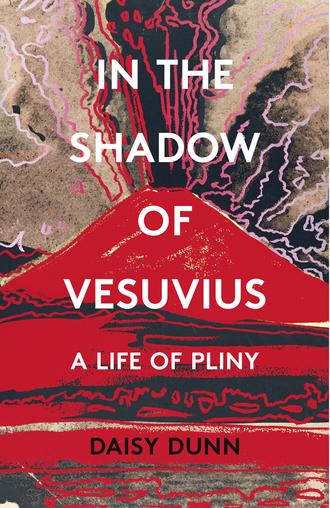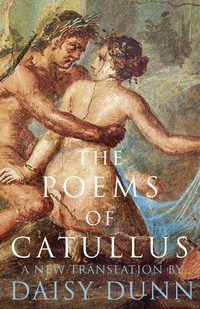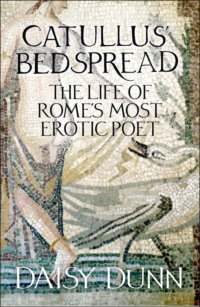
Полная версия
Pliny
In his abstemiousness and censoriousness towards shellfish, Pliny proved himself to be very much his uncle’s son. When his friend and fellow equestrian Septicius Clarus failed to show at his snow-and-spelt dinner, he assumed it had been because he had gone after the oysters and sea urchins on offer elsewhere. It was not like him to be tempted away by oysters: Pliny counted no one in his acquaintance ‘truer or more straightforward, accomplished or trustworthy’.51 On close enough terms with Pliny to have him assist in promoting his nephew to the senate, Septicius must have taken his teasing letter in good grace. Sue him for every morsel of food he had missed? He must be joking. The few surviving details of Septicius’ life shed light on his respectability. He was named as the dedicatee of Pliny’s collected letters as well as the most important biographical work of the age, Suetonius’ Lives of the Caesars.
Some years after Pliny’s death, Septicius Clarus and Suetonius travelled to Britain. Following their landings under Claudius, the Romans had suppressed the revolt of Boudicca in AD 60 or 61 and worked their way steadily northwards to conquer much of England and Wales. In AD 122, Trajan’s successor, Hadrian, launched an expedition to settle pockets of unrest and begin work on the wall that would eventually stretch from the east coast to the west and mark the northernmost frontier of the Roman empire. Septicius was praetorian prefect, Suetonius private secretary to the emperor. Both were powerful roles into which they appear to have relaxed only too easily. In the course of the British campaign they were dismissed from their posts, both allegedly on grounds of overfamiliarity with Hadrian’s wife.52 It was a late and fallible source that cited the reason for their dismissal, but it may just be that Septicius finally got his comeuppance for the shameless social climbing Pliny had scolded him for.
As for Suetonius, Pliny would have been surprised he had it in him. Before becoming a prolific author, Suetonius had cut a shy and self-doubting figure, at least when Pliny was around. He was less than ten years younger than Pliny but emerges almost boy-like from the Letters.53 Reticence was his defining characteristic. Pliny once helped him to secure a small estate and, as a first step towards public office, a military tribunate, or junior post, which Suetonius passed on to a relative.54 While Septicius Clarus ‘often urged’ Pliny to publish his letters, Pliny practically implored Suetonius to publish work of his own. Prior to his Lives, Suetonius completed a biographical compendium of famous men, including Pliny the Elder, which Pliny must have been eager to see released into the world.55 Within their circle of mutual encouragement, Pliny confessed to being ‘hesitant about publishing’, but Suetonius outdid ‘even’ him in his ‘dallying and delaying’.56
By the time Suetonius decided to try his hand at law, he was suffering from nightmares. He must have been in his late twenties when he wrote to Pliny seeking an adjournment to a trial on the basis of having had bad dreams. A more bullish lawyer might have told him to pull himself together, but Pliny was sympathetic. A perfectionist who was ‘never so prepared as to not rejoice at a delay’, Pliny had also experienced dreams in the past which appeared to augur ill for his cases.57 Around the time he embarked upon his legal career Pliny married for the first time. Nothing is known of his first wife, but he recalled in a letter how he was about to proclaim against ‘very powerful citizens and even friends of the emperor’ when he dreamed that his mother-in-law got down on her knees and begged him not to go through with the trial. The Romans believed that dreams merited deep consideration on the basis that they might have some bearing upon waking life. Like the Greeks before them, they realised that, while some dreams come to pass, others presage a less obvious result.
Any dream involving a mother figure was always ripe for discussion. On the Interpretation of Dreams, a definitive guide in five volumes, was published a generation after Pliny died and laid out what could come of nightly visits by matriarchs. The book was an important influence on Sigmund Freud, who read it before writing his Interpretation of Dreams in 1899, and described a number of possible scenarios. A senator like Pliny who might dream of having sex with his mother had reason to rejoice, provided he had adopted the missionary position; the mother symbolised the state, and one who governed his partner sexually could be sure to govern well politically.58 But a man of fragile health who dreamed of having sex with his mother on top, might predict his own death – for earth, Mother Earth, does not lie above the living. Such earthy thoughts could not have been further from Pliny’s conscious, but at their root lay the old idea that, for all the many things a dream can symbolise, Sleep is little more than a shadow of Death.
Since adjournments were not permitted in the Court of One Hundred, Pliny had had no choice but to ignore the warning of his dream and go through with his trial. The words he had used to reassure himself then were the words he used now to reassure Suetonius: ‘The best thing is to fight for one’s country.’59 With this hearty expression of patriotism, a quote from Homer’s IIiad, the young Pliny had stormed into the basilica, confronted the opposition, and promptly won his case. He recommended that Suetonius did the same. If his dream rendered the prospect of doing so too frightening, then Suetonius was well advised to interpret it to a better outcome. As Homer had illustrated, dreams were meaningful or meaningless depending on which of two gates they issued from. There was a gate made of horn and another of ivory. Dreams which poured through the ivory gate, according to Odysseus’ wife Penelope, were empty. But those which passed through the horn gate ‘bring the truth to pass whenever a mortal sees them’.60 It was to the gate of ivory, through which ‘the spirits of the dead send false dreams towards the sky’, that Aeneas and the Sibyl were led as they prepared to leave Hades in Virgil’s Aeneid.61 By departing through the gate of false dreams it was as if their journey to the land of the dead had never happened.
Pliny anticipated that Suetonius might still struggle and told him that he would attempt to delay his case. ‘It’s difficult, but I’ll try,’ he promised, for as Homer said, ‘a dream is from Zeus.’62 The line was a wry comment on the difficulty of interpreting one’s own dreams, for as he knew only too well, even dreams from Zeus could be deceptive. In the Iliad, Agamemnon, commander of the Greek army, was famously deceived into thinking that he could take Troy at once after the King of Pylos appeared to speak to him in a dream.63 On waking he decided first to test his men’s resolve by encouraging them to abandon the war and return home, since they had no hope of sacking Troy. Far from rejecting his plan and rallying to fight all the more defiantly, his soldiers shamefully got up to leave. It was up to Odysseus to talk them into staying. There was no chance of concluding the war after nine years in a single day. The dream was false. Vita vigilia est.
FOUR
Solitary as an Oyster
‘You are fettered,’ said Scrooge, trembling. ‘Tell me why?’
‘I wear the chain I forged in life,’ replied the Ghost. ‘I made it link by link, and yard by yard; I girded it on of my own free will, and of my own free will I wore it. Is its pattern strange to you?’
Charles Dickens, A Christmas Carol, 1843, Stave I
The festival of the Saturnalia was for most Romans, though not for Pliny, ‘the very best of days’.1 A week of wine and banquets, presents and practical jokes, it took place around the solstice each December and honoured Saturn, the Roman god of time and the seasons. Work ceased, togas were hung up, festive robes and caps put on, bottles opened, meat sliced, dice thrown, and roles reversed.2 Pliny had a couple of choices as to where to spend the holiday. He could stay in Rome and look at flamingos from the Nile, pheasants from Georgia, guinea fowl from Numidia (all the birds his uncle had discouraged Romans from travelling the world to see), while feasting – in the presence of dwarves and female gladiators – on nuts from Pontus, dates from Palestine, plums from Damascus, figs from Ibiza, and jars upon jars of wine.3 Or he could travel thirty kilometres south-west to the coast of the Tyrrhenian Sea and recline alone in a room that ‘not the voices of the younger slaves, nor the murmur of the sea, nor thunder nor lightning, nor light of day could reach, provided the windows were not open’.4 Pliny chose the latter.
There was something of Scrooge to Pliny come midwinter, ‘secret, and self-contained, and solitary as an oyster’.5 The arrival of the Saturnalia each year was his prompt to retreat to his ‘Laurentine’ villa and its most isolated rooms. Lying just south of Ostia, on Italy’s west coast, Laurentum was close enough to Rome that he could retire there for the season ‘when the day was done’.6 Built in the early first century on layers of oyster shells – sand, mortar, oyster shells, mortar again, pottery sherds, more crushed oyster shells – the village was delightful in its rusticity.7 Since the roads were liable to become too sandy to drive a carriage over, Pliny thought it best to complete the final leg of the journey from Rome by horse. On horseback one would gain sufficient height to see the crowns of the trees which grew in the woods inland. Emperor Tiberius had kept an elephant menagerie and guild of gamekeepers in woods around here, while an orator named Hortensius had created his own game preserve, to which he would invite friends for dinner and watch as his musician, Orpheus, summoned forth a parade of deer and wild boar to provide ‘no less distinguished a spectacle … than when the hunts of the aediles [junior politicians] take place in the Circus Maximus without African beasts’.8
Elephants had always struck Pliny’s uncle as closest to men in sensibility. Though less faithful than dogs and horses, they were intelligent, obedient and fired by ‘a desire for love and glory’.9 It was Pliny the Elder who first recorded their fear of mice.fn1 He had drawn on the research of Aristotle, who had undertaken an investigation into ‘the nature of animals’ for his pupil Alexander the Great, in the fourth century BC.10 Using information gathered from thousands of animal keepers and hunters across Greece and Asia, Aristotle had produced a comprehensive study of animals in almost fifty volumes, which Pliny the Elder commended to his readers. Aristotle described the elephant as the most well tempered and easily tamed of species, a view borne out in Pliny the Elder’s description of Romans teaching the beasts to walk tightropes, memorise the Greek alphabet, and engage in gladiatorial contests in the circus.11 Pliny, for his part, rarely found these entertainments anything other than disappointing. There was an occasion when one of his friends put on a show of exotic beasts in the amphitheatre at Verona. But owing to bad weather, the African panthers he was promised never arrived.
Victor Emmanuel II, the first king of unified Italy, is credited with rediscovering Pliny’s village in 1874 when Laurentum had again become a royal hunting preserve.12 While in Pliny’s time the villa-lined seafront was said to have borne ‘the appearance of many cities’, the village itself was revealed to be fairly compact and unimposing. More recent excavations have exposed part of the town plan as it developed. Beyond the houses was a road that led to Rome, some public baths (Pliny said there were three), and a forum so small that a visitor might easily have missed it.13 A few temples, a colonnade of shops, a meeting house, a restaurant with a winsome view over a fountain and public sculptures – Laurentum ‘met one’s basic needs’. Land near Pliny’s villa provided pasture for horses, cattle, and sheep, so there must have been milk and cheese. And though the sea off Laurentum was not ‘abundant in good fish’, it did have sole and prawns. For more extravagant things Pliny could always go to Ostia but, for all it might have seemed otherwise, it was never for extravagance that he came here.
Laurentum was where he wrote the most.14 He called it his Moυσεîoν after the ‘Seat of the Muses’ which contained the library of ancient Alexandria, but it was distinctly Italian.15 The Romans traced their origins to the landscapes of Laurentum. In Virgil’s epic, Aeneas is said to meet his bride Lavinia here. The place was named after the laurel tree, sacred to the poetry god Apollo, that grew in the courtyard of Lavinia’s father’s palace.16 Laurentum was for Pliny, too, a place of beginnings. He was descended from the Oufentina, a former tribe established in 318 BC and named after the river Oufens which flowed through it.17 If he could not write in a villa built upon the laurel-rich landscapes of the Romans’ ancestors (not to mention his own), then he might as well have given up.
The library of his Moυσεîoν was located in the winter quarters of his villa near some bedrooms and a dining room that was angled in such a way as to retain the sun’s heat, but keep out the sound of all winds ‘except those which bring in the clouds’.18 During the Saturnalia, however, not even these rooms were quiet enough. Leaving his slaves to send their ‘festive cheer’ echoing through the halls, Pliny retired instead to the living room, snug, bedroom with folding doors, and darkened cell which together comprised a sort of Saturnalian suite. It was this wing of his villa – not the D-shaped portico, nor the covered courtyard, nor the dining room with a view through bay windows ‘as if over three seas’, nor the ball court, nor the larger bedrooms, nor the walkway that ‘stretched almost to the size of a public monument’, nor the baths, nor the two towers with the dining rooms, bedroom and granary they contained – that he liked best.19 He had commissioned the suite himself and it was his ‘true love’.
Scrooge had his dark set (sitting room, bedroom, lumber room) and Pliny his private suite. The fact that the Saturnalia fell upon the solstice, when the day is that much shorter than the night, did nothing to dissuade Pliny from shutting himself away.20 Like a diligent schoolboy concealing his prep, he would pretend to friends that he was having a high old time revelling in the celebrations.21 Not to be fooled, Tacitus sent him a book to critique, knowing full well that it would reach him while he was still at his desk. Tacitus assumed, if not the role of guardian to Pliny, then that of idol and teacher, and Pliny was only too happy to play along. He wrote back to Tacitus at once, feigning outrage at being called ‘back to school’ in the middle of the holiday. For all Pliny fantasised about posterity reflecting in wonderment that ‘two men more or less equal in age and repute … should have nurtured each other’s work’, for much of the time he felt that he was indeed little more than Tacitus’ pupil.22 And so he sat at his desk, fretful that he had not produced enough work to send and thereby punish him for so knowingly summoning him back to the classroom in midwinter.
It was tradition during the Saturnalia for slaves to be dismissed from their chores and waited on by their masters. But not in Pliny’s house. The satisfaction of working when no one else was seems to have outweighed any pressure Pliny felt to engage with his staff over the holiday. His decision was perhaps more practical than selfish. He owned at least 500 slaves across his various properties by the time of his death.23 Rather than spoil them once a year he showed them his favour in other ways. Whenever he was looking to employ one, he would make a point of relying on his ‘ears rather than eyes’, believing that reputation was a more accurate measure of a man than the state of his hair and clothes. Every slave who entered his service was then allowed to leave a list of instructions for his belongings to be shared among other slaves in the household after he died.24 Pliny was not always kind, but he never chained his slaves, and throughout his life freed a great many of them. He even paid for one of his freedmen to travel to Egypt and Gaul in order to recuperate when he became ill and started coughing up blood. Such acts of generosity more than compensated for his reluctance to partake in their ‘idle gossip’ over the Saturnalia. The slaves were free to keep their holiday in their way, provided they let Pliny keep it in his: ensconced in rooms so secret, self-contained and solitary, that he felt like he had ‘left the house entirely’.25
Конец ознакомительного фрагмента.
Текст предоставлен ООО «ЛитРес».
Прочитайте эту книгу целиком, купив полную легальную версию на ЛитРес.
Безопасно оплатить книгу можно банковской картой Visa, MasterCard, Maestro, со счета мобильного телефона, с платежного терминала, в салоне МТС или Связной, через PayPal, WebMoney, Яндекс.Деньги, QIWI Кошелек, бонусными картами или другим удобным Вам способом.




